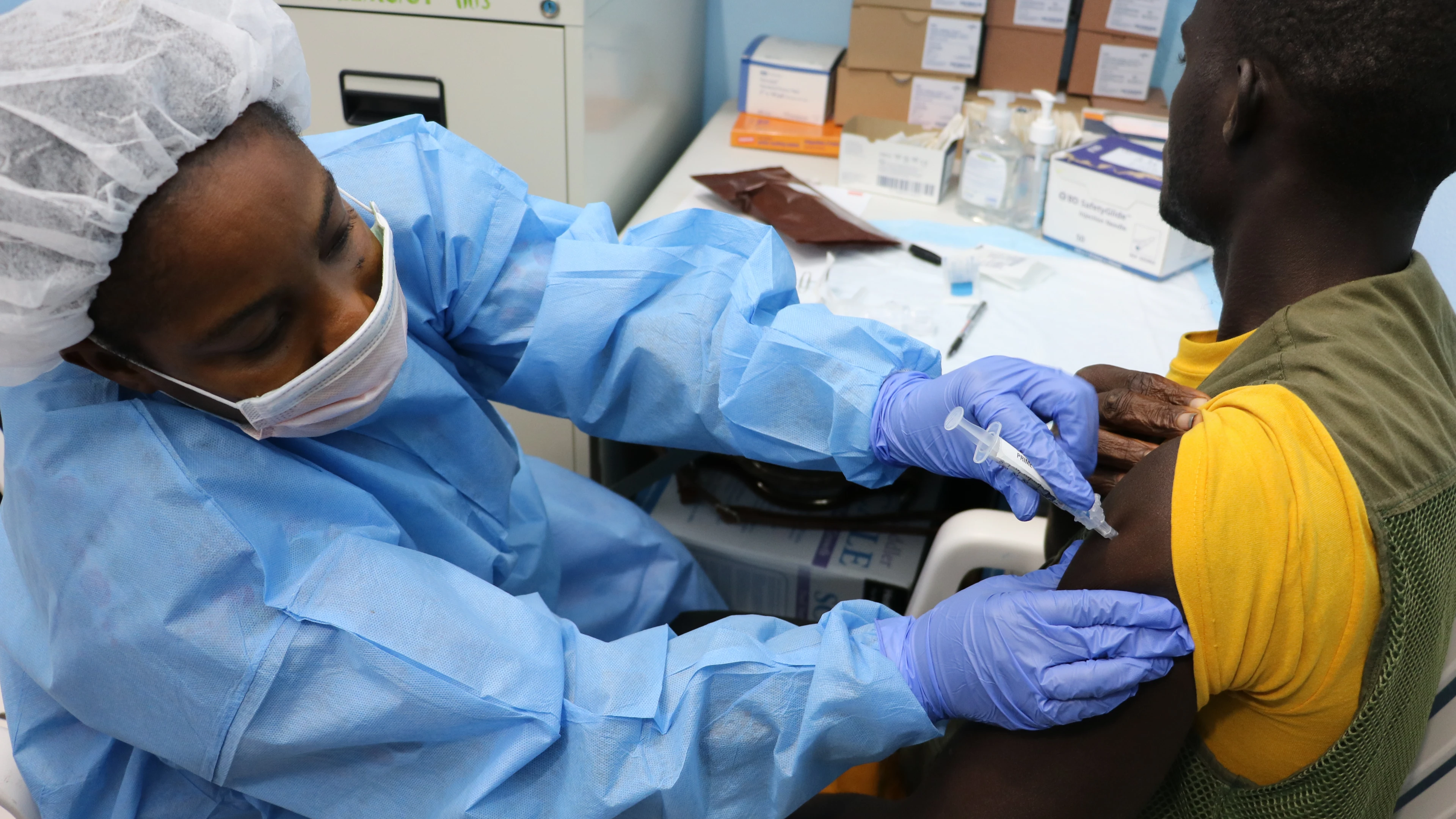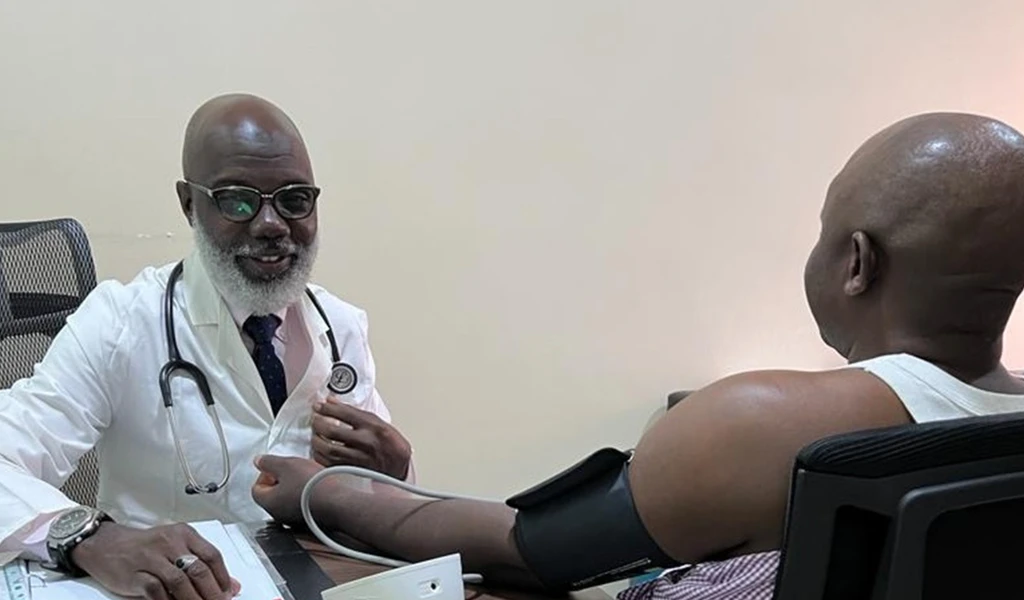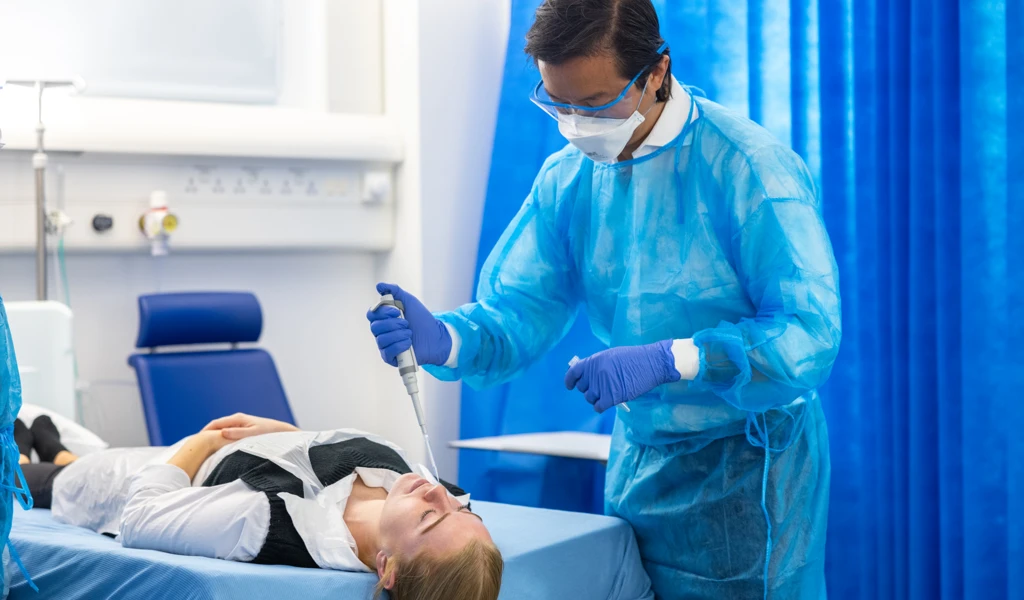CEPI, IVI and MRC Unit The Gambia partner to bolster clinical research capacity in West Africa to combat regional viral threats

CEPI-backed Research Preparedness Program West Africa aims to bolster regional clinical trial capacity and disease outbreak readiness.
Partnership will support regional stakeholders to strengthen clinical research capacity to conduct Phase 2b / 3 clinical trials of Lassa fever vaccines in the region, for the region; and to rapidly generate evidence in case of a new disease outbreak, in support of the 100 Days Mission.
28 November 2023; OSLO, Norway; SEOUL, Republic of Korea; SERREKUNDA, Republic of The Gambia: The Coalition for Epidemic Preparedness Innovations (CEPI), the Republic of Korea-based International Vaccine Institute (IVI) and Gambia's Medical Research Council Unit The Gambia (MRCG) today announced the launch of the Research Preparedness Program West Africa (RPPWA). IVI, as the ‘Technical Coordinating Partner', alongside MRCG will co-lead the RPPWA, supporting a consortium of regional stakeholders to bolster the capacity of clinical research sites across West Africa to conduct large-scale clinical trials of vaccines against Lassa fever and future disease outbreaks which might threaten the region.
Dr Richard Hatchett, Chief Executive Officer, CEPI, said: "CEPI, IVI and MRC Gambia will work with partners across West Africa to bolster the region's growing clinical research sector, so it is ready to tackle both known and future viral threats. The Programme's first priority is to assist regional stakeholders to prepare clinical trial sites to conduct the first-ever Phase 2b and Phase 3 clinical trials of a Lassa fever vaccine in the region, for the region, bringing protection against this potentially deadly disease one step closer for people across West Africa. Looking to the future, the strengthened research capacity and capability will heighten outbreak preparedness in the region with the aim of generating high-quality clinical trial data during regional disease outbreaks in as little as 100 days."
Dr Florian Marks, Deputy Director General of Epidemiology, Public Health, Impact at IVI, said: "IVI has been actively engaging with partners across West Africa for decades, jointly conducting multi-country disease surveillance and vaccine effectiveness studies in the region. As the Technical Coordinating Partner and co-lead of the Research Preparedness Program West Africa with MRCG, IVI looks forward to this collaborative effort to build up clinical capacity and resilience against vaccine-preventable infectious diseases, focusing on Lassa fever and other priority diseases in the region."
His colleague, Dr Birkneh Tadesse, Head of Real-World Evidence, IVI, added: "Our activities in the region will extend beyond supporting current and future Lassa fever vaccine studies, encompassing systems- and infrastructure-strengthening across West African study sites. With mechanisms in place to both standardize and accelerate the R&D ecosystem, this "Track B" component of the program will be essential for regional pandemic preparedness, in line with CEPI's 100 Days Mission."
Professor Ed Clarke, Vaccines and Immunity Theme Lead, MRCG said: "We are thrilled to be co-leading this unique initiative in West Africa. Anyone with knowledge of the clinical research environment in the sub-region and how it has developed, even in the last decade, will recognize the wealth of talent, capacity and potential which already exists. We hope our long-standing clinical vaccine trial, research, and capacity building experience in the sub-region will allow us to further support the development of the vaccine-research ecosystem here, while I am certain we will equally benefit from the expertise of other West African partners, as well as from IVI and additional stakeholders. The ambitious goals set for Lassa fever vaccine development, and for the delivery of vaccines for future disease outbreaks, require coordinated effort and we look forward to contributing to this exciting and forward-thinking consortium".
Dr Armel Zemsi, Head of the clinical trials unit, MRCG said: "At MRCG, we view this exciting program and dynamic partnership initiated by CEPI as an exceptional opportunity to fortify West Africa and empower the region to assume a pivotal and proactive role in preventing and responding to potential pandemics. To achieve the goal of this project, together with IVI, we will leverage our extensive collective experience in developing clinical trials capabilities and achieving clinical trials readiness in resources-constrained settings."
Dr Virgil Lokossou, Ag Executive Director, ECOWAS Regional Center for Surveillance and Disease Control, added: "Investing in late-stage clinical trials, trial sites and production capacity for endemic infectious disease products will be crucial for improving access to vaccines, therapeutics, and diagnostics across Africa, and is an important priority for the West African Health Organization and ECOWAS Member States. We welcome the news from CEPI, IVI, and the MRCG on their Research Preparedness Program in West Africa, which will ultimately be implemented through West African expertise and ownership. By leveraging already existing clinical trial capabilities, the Program will help to solidify the late-stage clinical infrastructure required to develop safe and effective vaccines and, in doing so, support West Africa to combat future infectious diseases outbreaks faster and more equitably. We look forward to working more closely with CEPI and its partners as the Program progresses."
Supported by US$3.9 million of CEPI funding, the RPPWA will lay the groundwork for the first-ever high-quality, multi-country Phase 2b and Phase 3 trials to evaluate the efficacy of Lassa vaccines. Such trials are a prerequisite to a Lassa vaccine being approved by regulatory authorities, and can only take place in countries in West Africa where the potentially deadly virus is circulating. The RPPWA will work with partners across the region to strengthen existing clinical trial infrastructure in West Africa, while also establishing additional Good Clinical Practice-compliant Phase 2b/3 trial facilities capable of conducting the crucial research that will advance a Lassa vaccine on its path to licensure.
The RPPWA will also support long-term outbreak preparedness in the region by helping to prepare sustainable clinical trial facilities that can rapidly generate vaccine data against future viral threats, primarily through strengthening existing research capacity. The consortium will build upon the clinical trial infrastructure developed to conduct Phase 2b and Phase 3 Lassa fever vaccine trials in the region and develop procedures, governance structures and pre-agreed clinical trial protocols that would enable rapid evidence generation in response to outbreaks of known and unknown pathogens. Having such high-quality clinical trial capacity at the ready in outbreak-prone areas, so that vaccine trials can begin within weeks of a new outbreak, has been identified as a crucial enabler of the 100 Days Mission: a global goal, spearheaded by CEPI and embraced by the G7 and G20, to deliver pandemic vaccines in just 100 days.
Leveraging local and regional expertise to support greater outbreak preparedness
IVI will act as the Technical Coordinating Partner and, with MRCG, will co-lead the RPPWA which additional partners are expected to join. Both institutions have extensive experience implementing clinical research and vaccine trials in the West Africa region, with a track record of promoting local guidance and ownership. As co-leads for the RPPWA, the organisations will closely engage regional stakeholders to ensure cohesion with other regional funders and stakeholders in the outbreak preparedness ecosystem; and ensure local ownership of the RPPWA's activities and investments.
As a first step, the co-leads will initiate discussions with local and regional partners in West African countries to jointly develop plans that will strengthen sustainable clinical research capacity and long-term outbreak preparedness in the region. Infrastructure that is established as a result of the Program will be accessible to external stakeholders conducting clinical research in the region, subject to availability.
The RPPWA has been established in response to a Request for Proposals launched by CEPI in May 2023. West Africa will be the first region where the Research Preparedness Program will launch, but the intention is to expand this approach to other underserved regions across the Global South in the future.
Image courtesy: National Institute of Allergy and Infectious Diseases.
—ENDS—
Notes to Editors
About CEPI
CEPI is an innovative partnership between public, private, philanthropic, and civil organisations, launched at Davos in 2017. Its mission is to accelerate the development of vaccines and other biologic countermeasures against epidemic and pandemic threats so they can be accessible to all people in need.
CEPI has supported the development of over 30 vaccine candidates against its priority pathogens—Chikungunya virus, Ebola Virus Disease, Lassa virus, Middle East Respiratory Syndrome coronavirus, Nipah virus, Rift Valley Fever virus and SARS-CoV-2—and is advancing the development of rapid response platforms to develop vaccines against Disease X (the threat of an unknown virus). CEPI played a central role in the global response to COVID-19, co-leading COVAX and supporting a broad portfolio of vaccines, seven of which have been approved for domestic or global use. It is a leading funder of research into vaccines which could offer broad protection against COVID-19 variants and other betacoronaviruses.
Central to CEPI's pandemic-beating five-year plan for 2022-2026 is the ‘100 Days Mission' to compress the time taken to develop safe, effective, globally accessible vaccines against new threats to just 100 days, which has been embraced by the G7 and G20.
Visit our news page for the latest updates. Follow us via @CEPIvaccines, @DrRHatchett, LinkedIn, and Facebook.
About International Vaccine Institute (IVI)
The International Vaccine Institute (IVI) is a non-profit international organization established in 1997 at the initiative of the United Nations Development Programme with a mission to discover, develop, and deliver safe, effective, and affordable vaccines for global health.
IVI's current portfolio includes vaccines at all stages of pre-clinical and clinical development for infectious diseases that disproportionately affect low- and middle-income countries, such as cholera, typhoid, chikungunya, shigella, salmonella, schistosomiasis, hepatitis E, HPV, COVID-19, and more. IVI developed the world's first low-cost oral cholera vaccine, pre-qualified by the World Health Organization (WHO), and developed a new-generation typhoid conjugate vaccine that is currently under assessment for WHO PQ.
IVI is headquartered in Seoul, Republic of Korea with a Europe Regional Office in Sweden, Country Office in Austria, and Collaborating Centers in Ghana, Ethiopia, and Madagascar. 39 countries and the WHO are members of IVI, and the governments of the Republic of Korea, Sweden, India, Finland, and Thailand provide state funding. For more information, please visit https://www.ivi.int.
About Medical Research Council Unit The Gambia at LSHTM (MRCG)
MRC Unit The Gambia is a centre of excellence for scientific research and innovation, with a vision to lead health research to save lives in Africa and improve health across the world. With more than 75 years' experience in sub-Saharan Africa delivering research aimed at reducing the burden of illness and death in low- and middle-income countries, MRCG brings world class research technology to The Gambia, invests in life-changing disease surveillance and preparedness, and is training the next generation of researchers. MRCG currently leads research focussed on 3 broad themes — Vaccines and Immunity, Disease Control and Elimination and Nutrition and Planetary Health. MRCG also support The Gambia Government and surrounding countries with health care knowledge to guide national policies and national development priorities to improve population health and resilience. For more information and latest news, visit our Home page or social media channels X Facebook LinkedIn or email for enquiries.
Media contacts
CEPI
E: [email protected]
P: +44 7387 055214
IVI
E: [email protected]
P: +82 2 881 1386
MRCG
E: [email protected]
P: (+220) (0) 4495835 / 4495443-6


